

Two-third of people do not sleep enough. But do you? How many hours you think you should sleep at night? Six, seven or eight? Is that enough for you? A neuroscientist has found a revolutionary way to be attractive, cleverer, slimmer, healthier, happier and reduces cancer risks - a good night sleep. Matthew Walker knows the true value of what a good sleep offers. But it seems like our so called 'modern generation' underestimate the value of sleep and maybe because they often co-relates the sleep with being lazy. Despite of the fact that we spend one-third of our life sleeping and still the schools taught students about the benefits of eating healthy and exercise but never anything about sleep. According to the author, sleeping less than six or seven hours a night gradually destroys your immune system, doubles the risk of cancer and also makes you vulnerable to many disease. If you think you are a real productive person, then this book is actually meant for you. Get the book on amazon.
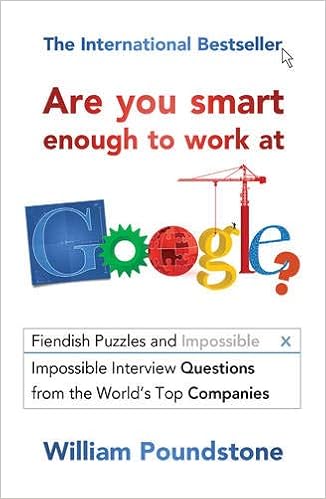
To work at the most creative and open culture company is a dream-job for many people and that's why Google receives millions of applications every year from all around the world and only about 2% of them end up getting recruited. Many people would think that the number of recruitment might be low because of hard and trickier questions fired by the interviwers at candidates and maybe they are right as rain. Being a creative company, Google do go out of its own way to hire people who are little different than others and interviewers do not expect an acceptable answer but a better response from the candidate. The book is full of many logical and weird puzzles asked at various companies other than Google like Apple and IBM. One of the most mind-bending puzzle inside is to find out the next number in the given sequence 10, 9, 60, 90, 70 and 66. The answer is something from which the company got its name, Google. There is no need to be a genius like Leonardo Da Vinci to tackle an answer because what Einstein said actually fits on Google, "Imagination is more important than knowledge." On the other side, William says that interviews are a pretty bad predictor of performance. Doing well in interview is not same as doing good on the job. So forget Google, if you like this kind of thing, you will love this book if you have the time for it. Get the book on amazon.
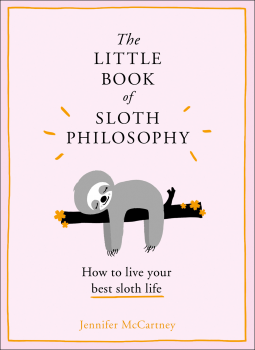
This little book is not meant for those who immensly believe that its okay to be in a rat race. Don't you think that we're living our lives in a rush or do we really need that business in our lives? Does that rush and business makes you a productive person? A happier and calmer person? Maybe we're accustomed to think that the path to wellness and longevity can only be pursued by running a marathon or by doing fifty crunches a day or climbing Mt. Everest. Maybe its not. Then maybe the sloths, the slowest living creatures on the planet who walks at the speed of 4 metres per minute and hardly 4.5 metres in emergency, can inspire us with their slothful actions. They resist the rat race and incessant pressures from the society which helps them to be productive and happy. Even science is learning what sloths already know: moving slowly has its own benefits. This book brilliantly confirms that it is okay to be a sloth. And why rush if you don't have to. Curious to read? Get the book now.

This book holds the set of priciples for life and work the author, founder and CEO of the world's most successful hedge fund Bridgewater Associates has acquired through his 40 years of career in finance. This book is a compilation of what Ray painstakingly has build the layers on knowledge and wisdom in his mind over so many years of learning and through a lot of failures but they're what helped him to establish a successful company and live a good life. One of the beautiful quote from the author: "Rather knowing, 'I'm right.' I started asking myself, 'How do I know I'm right?'" Maybe it was Tony's idea to pass on some of the wisdom that led him to write this book. But whatever the reason was, as a result, now you and me can learn more about his principles. Grab the book discover your own principles right now.
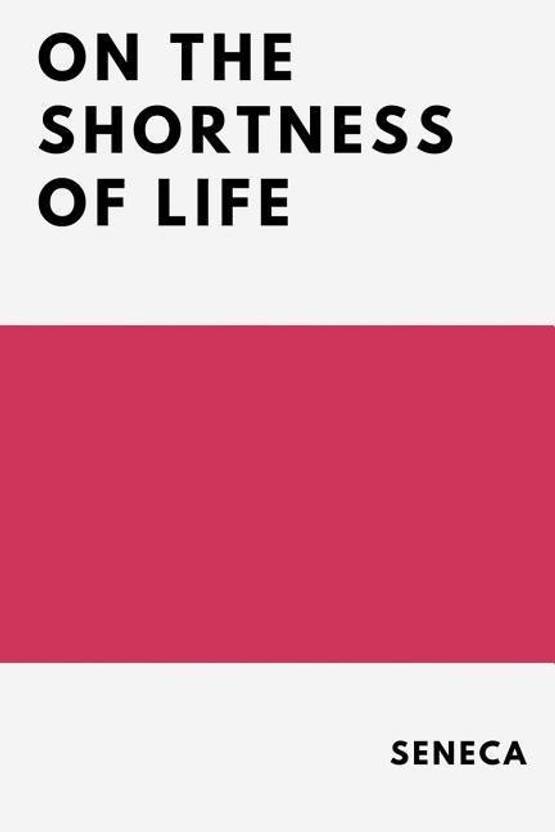
Are you a kind of person who thinks that you are given a brief span of life? Then you are not alone; many people thinks the same way. According to an ancient stoic philosopher Seneca, life is long if you know how to use it. Its not that we are given a short spell of time but because we waste a lot of it. Its our insatiable desires of chasing leisure, luxury and legacy that makes our long life appear so short. We tend to live as if we are destined to live forever. Its only a small fragment of life we really live. Indeed, all the rest that we live is not life but merely time. Our life is just like a river which flows swift and sure in one direction without checking its direction and neither it extends itself on anyone's command. It just pass. One can still be busy all his life without ever doing anything meaningful at all. So beware. The book around 2000 years old and this masterpiece makes you to contemplate the way you use your time and will guide you to live a meaningful and fulfilling life. Grab the book on amazon.
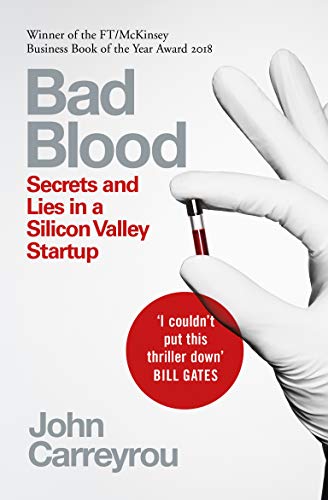
The book is all about a $9 million startup company, named Theranos, which ended up being a fraud. Its founder, Elizabeth Holmes was 19 years old sophomore who approached her professor claiming that she has an idea for a product that has the potential to identify blood type and disease non-invasively with a single drop of blood. The downfall began when some patients saw a huge difference between the report generated by the Theranos labs and those generated with a worldwide commercially accepted devices. The company after getting declared as a massive fraud, Elizabeth was forced to step down from the CEO of the company and it was officially shut down in May, 2016. The company faced some fraud charges. We couldn't put down this thrilling book, written by a French-American journalist with Wall Street Journal John Carreyrou, over the dramatic rise and fall of Theranos. A documentary film, The Inventor: Out for Blood in Silicon Valley was released about the company in 2019.

A beautiful memoir of a young girl (the author) who never saw the world beyond mountains. She kept out of school, leaves her home and goes on to earn a PhD from Cambridge University. She was 17 when she first set foot in a classroom. The author has fabricated a brilliant story that gets to the heart of what education is and its benefits. This book is also an account of young lady whose courage, strength, knowledge and intellects lights up every page of the story. Educated portrays the unstoppable efforts of young girl who is determined to change herself. Last but not least, this book is a prefect example of things we can achieve if we are really committed to it. If you want to know what Bill Gates say about this book then read his post 'Education is even better than you've heard.'

If you can get 1% better each day over the next year, you will be 37 times better by the time you are done. This applies to all goals, whether it is losing weight, winning a race, or starting a business. A fantastic book written over habits. It is a refined version of book 'The Power Of Habits' written by Charles Duhigg. Atomic Habits is a definitive guide to break bad habits and adopt good ones in just four systematic and fundamental steps showing you how small, incremental, everyday routines compound and adds up to a massive, positive outcome over time. James has made things easier to understand how our habits works through graphs and how our brain runs whenever a habit is performed. The key takeaway is only a slight change makes all the difference over time. If you want learn more from the author, checkout his various articles on his website.

Malcolm has provided great insights on why something spreads like a wildfire with a great deal of research, interviews and data throughout the book. Although, the book is several years old but the ideas that has been discussed are still much relevant and certainly can be applied in any business situations. The book mainly focuses on three concepts, namely law of the few, stickiness factor and the power of context, from where an idea gets a life of own and spreads like wildfire. Overall the book was a great read and not only you get the insights into customer psychology but are also able to implement some of the ideas discussed and apply them to your business. David and Goliath, Blink & What the dog saw are some other popular books from the author.
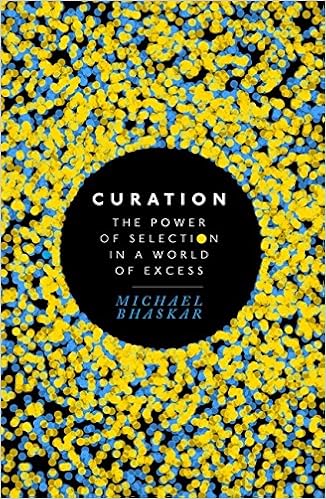
What of more modern works? I used to recommend the “blistering indictment” of the flight from traditional liberal education that is Melanie Phillipss All Must Have Prizes, to be read alongside Tom Bentleys Learning Beyond the Classroom: Education for a Changing World, which is a defence of a wider view of learning for the “learning age”. These two books defined the debate in the 1990s between traditional education by authoritative teachers and its rejection in favor of a new learning in partnership with students. A cheaper and better way of giving student teachers and in-service teachers an understanding of education would be to get them to read the 50 great works on education.

There are enormous number of books that tells you about great selling techniques, marketing strategy and planning. And then there are some that tells you to forget everything about it. This book might be one of them. It tells you about the biggest leaps ever taken. If you are creating a product that already exists in the world, then you are making a horizontal progress that means you are going from 1 to n. But if you are doing just the opposite- means creating something that doesn't exist, then your progress is vertical, that means you moving from 1 to 0. Every tech-giants like Amazon, Facebook, Microsoft and Apple achieved their success by creating something fundamentally new. That is, they made a vertical progress not horizontal. A brilliant book written over startup by a chess master under age 21, a doctorate in law by age 25, and a company sale for $1.5 billion at age 35.
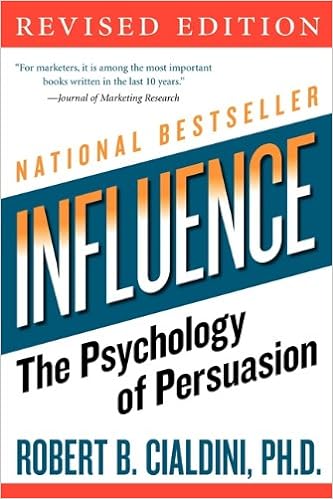
It entirely based on 35 years of evidence based research. The author has pinpointed 6 key influencers, reciprocation, commitment, social proof, liking, authority, scarcity, of persuasion and these principles can lead to say 'yes' automatically. Every one of them can be used to bring positive change or to deceive others people. Being aware of theses weapons allows us to defend ourselves from "compliance professionals" (e.g salespeople or marketers) who are pretty much specialized in getting people to comply with their request. This book is full of detailed case studies and examples of the 6 principles, illustrate how they work, and how they can be used against us. You can use the insights from the book to positively influence others while protecting yourself from deception. If you really want to persuade someone, then its worth reading. Grab the book on amazon now.

Our brains thinks in a two-way process and both of them are essential for mankind. Process 1 (thinking fast) and Process 2 (thinking slow). Process 1 is the intuitive - it means, we make decisions by thinking straight from the gut and Process 2 is the analytical one which means we make decisions through a critical thinking. We tend to believe that whatever the conclusion we make is the output of Process 2 but, actually, its the Process 1. We spend most of our lives engaged in Process 1, i.e thinking fast. Only if we encounter something unexpected or if we try to make a conscious effort, then we use engage with Process 2. Its impossible to avoid relying on Process 1 thinking for most of our lives. A groud-breaking book written by, an American-Israeli psychologist and economist and a Nobel Memorial Prize winner, Daniel Kahneman. Are you still curious to read? Grab the book right here.
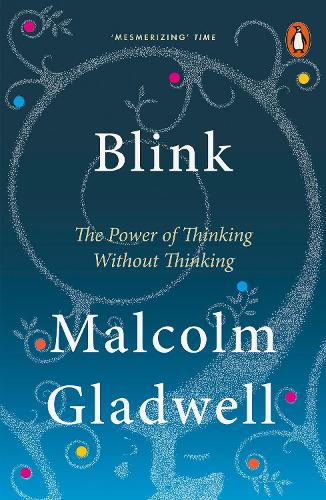
Consider a scenario that you are walking in a park and you suddenly noticed that from a corner of your eye that you're being followed by someone in the dark. In a fraction of a second, you made up your mind; he is out to get you and he is not your friend. Your heart start racing, your pace picks up and the next moment, you start running. What happened in your brain in those split seconds? Why did you make a snap judgment on that man? The book is all about the split second situations. The author talks about the concept of 'thin slicing' which says that humans make quick judgment based on a very little piece of information. Grab the book right here.
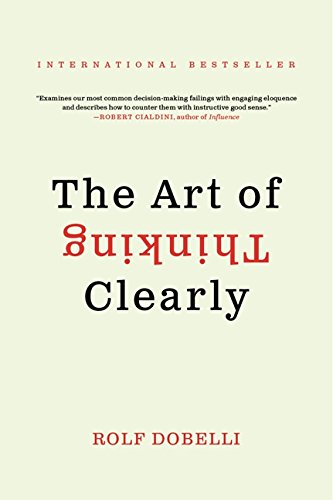
This has been our community's favorite book over thinking. The author aims to help people by making better decisions in life. We all are surrounded by cognitive biases that most of us don't realize but are happening. The book is subsumed with many short stories and clear explanations. Rather than adopting any new kind of thought process, the author wants us to probe our current thought process. Anyone could use them to think more clearly about his/her creative thinking. If you are photographer, blogger or photographer blogger, you could do the same. Overall, diving into the book may help you make better decisions in countless aspects of your life, every single, whatever it is you do. Still curious? Grab the book right here.

This one is perfect for you, if you believe that you are living under the illusion that you control most of your decision consciously. Then you might be wrong. It is a primary guide for anyone who is fascinated by on has been struggled with with habits, craving and will power. The idea that our habits are a powerful gear of behavior is not a new one. Infact, William James was one of many to observe that our our life is nothing but a mass of habits - practical, emotional and intellectual, systematically organized for our weal or woe. The favorite quote from author is - "The difference between who you are and who you want to be is what you do." A Pulitzer Prize winner, Charles Duhigg, has given a detailed account on why our habits are at the core of anything you do and how can you change them and what impact it can create on your life. Are you curious to read? Grab the book now.
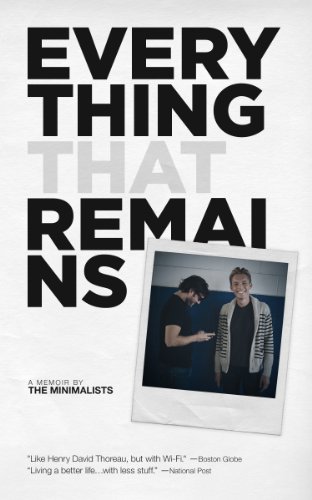
This book is a heart-felt and touching story of two friends and how the discovered a road to minimalism and helping thousand of other people to start living intentionally and more simply. Joshua takes the center stage as he first writes about their stories along with the Ryan's witty interruptions which definitely not be overlooked while reading. Their stories are both humorous and inspirational, telling about their childhood, friendship, relationship and how they climbed the corporate ladder without proper qualification only to find out that this life wasn't all what they have always wanted. If you want to know more about them or read their essays, checkout their extremely popular theminimalisits.com website. You can also read their other books - As a decade fades, Minimalism and Essential.